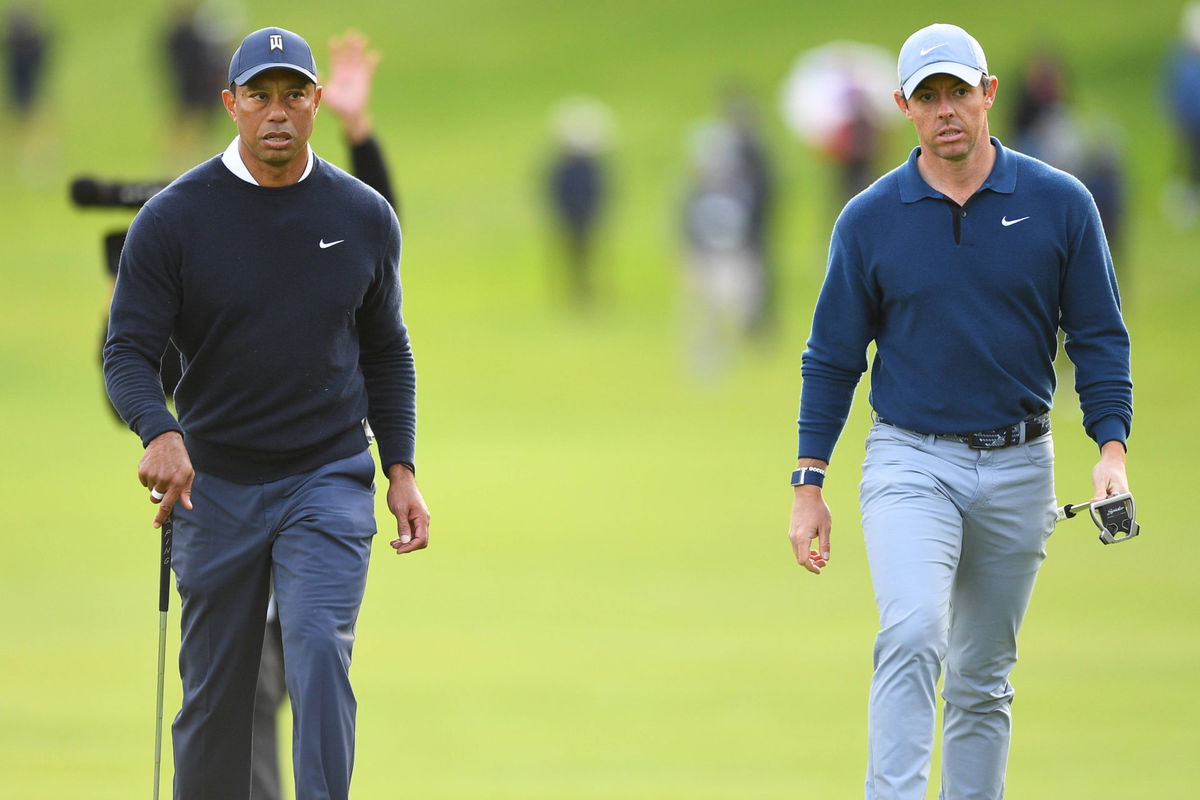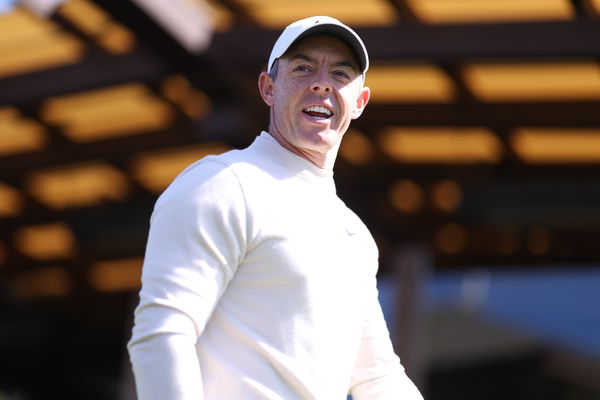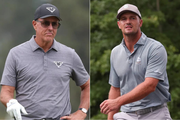

Want to know something that’ll change how you view golf’s biggest stars? In 25 years, only two players have truly carried the crushing, relentless weight of an entire tour. The emotional toll? It’s been absolutely devastating.
Watch What’s Trending Now!
Billy Horschel recently pulled back the curtain on this harsh truth during the 5 Clubs Podcast. Meanwhile, his words painted a stark picture of what it means to be the PGA Tour’s primary ambassador. “There’s not a more scrutinized player I believe in the game of golf since Tiger Woods,” Horschel explained. “Rory’s been that guy. He’s been the one who’s led the PGA tour, has been the show pony, the person that everyone looks to.”
The comparison isn’t accidental. Tiger Woods blazed this trail of intense scrutiny from the late 1990s through the 2010s. During his prime, every move was dissected, every statement analyzed, and every tournament became a referendum on his dominance. Subsequently, the media machine demanded his presence at every major event. His absence from tournaments resulted in dramatic viewership drops, proving his singular importance to the sport.
ADVERTISEMENT

Imago
February 15, 2025, La Jolla, California, USA: RORY MCILROY looks on while walking to the first tee during the third round of the 2025 Genesis Invitational at Torrey Pines Golf Course in La Jolla, California. La Jolla USA – ZUMAt158 20250215_zsp_t158_067 Copyright: xBrentonxTsex
The burden then shifted to Rory McIlroy‘s shoulders. Additionally, the Northern Irishman inherited this role almost by default after establishing himself as golf’s next great talent. However, Horschel recognized the toll this has taken on his longtime friend. “I think he’s the best player in our generation,” Horschel has said about McIlroy, acknowledging that he’s “probably the most loved golfer after Tiger Woods.” This deep respect between the two players has only grown stronger over their careers.
Horschel witnessed firsthand how this pressure manifests. Similarly, McIlroy recently demonstrated the weight of expectations through his media behavior. Specifically, he skipped post-round interviews at the PGA Championship after driver controversy leaked to the press. “I was a little pissed off because I knew that Scottie’s driver had failed on Monday, but my name was the one that was leaked,” McIlroy explained. Later, he defiantly stated, “I feel like I’ve earned the right to do whatever I want to do.”
ADVERTISEMENT
Horschel elaborated on how this unique burden has shaped McIlroy’s entire career trajectory. “I think winning the Masters was, as we all saw, was such a massive relief and a weight off his shoulders that I think it’s right that he had, you know, just sort of was sort of lost a little bit,” Horschel observed during the podcast. He continued, emphasizing the cyclical nature of this pressure: “You have this goal of wanting to be a Grand Slam winner, winning the Masters and etching a name alongside five other players and you’re going to have a little bit of a down and I think now he’s recharged.” Horschel believes McIlroy has found new motivation, noting that “he always has the motivation, finds a motivation, finds something sort of to spark his desire again.”
These moments reveal the psychological toll of being golf’s standard bearer. Consequently, both Woods and McIlroy have shouldered expectations that extend far beyond their individual performances. Meanwhile, they’ve become symbols of the sport’s health and vitality. Horschel perfectly captured this reality: “He’s had to deal with over his last 10 or 15 years of his career… has all the expectations of what they expect for him to do in the game and to achieve.”
ADVERTISEMENT
Interestingly, this burden has haunted golf’s greatest talents for decades. Arnold Palmer pioneered this role in the 1960s, transforming golf from an elite pastime into television gold while earning the title “Athlete of the Decade.” Conversely, Jack Nicklaus deliberately avoided inheriting Palmer’s ambassador role, focusing purely on winning despite fans often booing his success. Phil Mickelson, despite his talent and 45 PGA Tour wins, never fully inherited this mantle because he remained overshadowed by Tiger’s unprecedented dominance.
Top Stories
LIV Golf Braces for Another Possible Exit in Wake of Brooks Koepka Departure

Rory McIlroy Makes Feelings Clear on Bryson DeChambeau’s PGA Tour Return: ‘Have Lost…’

Amanda Balionis Confirms New Relationship Ending Months of Rumors

Bryson DeChambeau Gives Reality Check to Phil Mickelson When Asked to Select His Mount Rushmore for Golf

After Brooks Koepka, Another Pro Cuts All Ties With LIV Golf & Publicly Backs PGA Tour

Rory McIlroy’s Burden: The Search for Golf’s Next Standard Bearer
Now, the question becomes: who inherits this burden next? Currently, Scottie Scheffler sits at world No. 1 with three major championships. However, his quiet demeanor and preference for privacy suggest he might not naturally fill this role. Nevertheless, his consistent excellence demands attention.
ADVERTISEMENT
Viktor Hovland, Xander Schauffele, and Jon Rahm are among the potential successors. Yet, none have shown the charisma or media presence that defined Woods and McIlroy. Additionally, the fragmented golf landscape makes it harder for any single player to capture universal attention.
The PGA Tour desperately needs its next “show pony.” Television ratings prove this reality – viewership drops significantly when marquee names aren’t competing. Therefore, some emerging star must eventually accept this mantle.
Horschel’s revelation reminds us that being golf’s face isn’t just about talent. Instead, it requires sacrificing privacy, enduring constant scrutiny, and carrying the sport’s commercial interests. Both Woods and McIlroy have paid this price, continuing a cycle that began with Palmer’s transformation of golf into a television spectacle.
ADVERTISEMENT
ADVERTISEMENT
ADVERTISEMENT
ADVERTISEMENT

